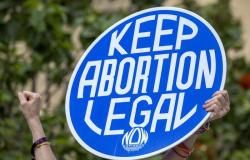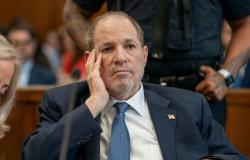After almost two weeks of discussions on topics defined as “crucial” regarding future global threats, the member states of the World Health Organization (WHO) concluded their ninth meeting and agreed to resume negotiations from 29 April to 10 May, month where the process to officially finalize the international treaty on pandemics. This was reported on the Organization’s website, which recalls that the document provides adequate funding for “preparation for threats, equitable access to necessary medical countermeasures and strengthening of healthcare personnel”, adding that the agreement is fundamental “to protect future generations from the suffering endured during the Covid-19 pandemic.” If the text is also confirmed and corrected by Italy, the Bel Paese will have to undertake to respect potentially legally binding articles and, according to the latest available version of the draft document, recognize WHO’s central role in coordinating to “establish research objectives and priorities» and «develop products related to the pandemic», also in collaboration with the private sector.
The ninth meeting of the Intergovernmental Negotiating Body (INB9) of the WHO, the institution created in December 2021 for the “prevention, preparedness and response to pandemics” by the World Health Assembly, ended on 28 March. The resumption of negotiations has been scheduled for next month – from 29 April to 10 May – and, according to the Organization’s press release, «will constitute a milestone in view of the seventy-seventh World Health Assembly, which will begin on 27 May 2024 , during which the Member States will examine the proposed text for the adoption of the first global agreement on the pandemic”. “Our Member States are fully aware of how important the Pandemic Agreement is to protect future generations from the suffering we have endured during the Covid-19 pandemic. I thank them for their clear commitment to finding common ground and finalizing this historic agreement in time for the World Health Assembly,” said WHO Director-General Tedros Adhanom Ghebreyesus, who less than two months ago warned That «the next pandemic will be a question of when, not if», concluding that the next global threat could be caused by an «flu virus, by a new coronavirus, or it could be caused by a new pathogen that we don’t know about yet, what we call Disease X». The commitment was also recognized by Dr. Precious Matsoso, co-president of the INB Bureau who stated: «Governments clearly recognize that the objective of a pandemic agreement is to prepare the world for prevent and respond to future pandemics, building on consensus, solidarity and equity. These goals must remain our north star as we move toward finalizing this historic and urgent commitment to the world.”
The current draft of the agreement, which provides funding for pandemic preparedness and promises commitment to equitable access to necessary medical countermeasures and strengthening of the health workforce, it also obliges signatories to recognize the central role of the World Health Organization in coordination to «establish research objectives and priorities» and «develop products related to the pandemic», also in collaboration with the private sector. These products will also have to be developed thanks to public and private investments and also through the commitment to encouraging “international organizations to make investments” and to «establish long-term contracts» with producers. All this while each party is committed to strengthening and strengthening the health system with the possibility of adopting active surveillance policies, plans and strategies to combat the threat and try to contain it. The risk, therefore, is that of delegating the “central role” in coordination to an international organization which – as explained in another article in L’Ineditore – is financed mainly by voluntary donations from private organizations such as the Bill and Melinda Gates Foundation and GAVI Alliance.
We are now just waiting for the responses of the government which for months already seems split in half between those who reject the treaty and those who still promise to “advance Italy’s interests”: this is how the government responded. Minister of Health Orazio Schillaci to the question on the topic presented by Senator Claudio Borghi, who had asked for answers regarding the risk of transfer of sovereignty and conflicts of interest. As regards Fratelli d’Italia however – which however in recent months has presented a pandemic plan similar to that of former minister Roberto Speranza – currently the last comment on the topic dates back to March 29, when the party said «no to Green Global pass” and promising justice for victims of adverse reactions to the vaccine, without however directly speaking about the WHO treaty.
[di Roberto Demaio]





